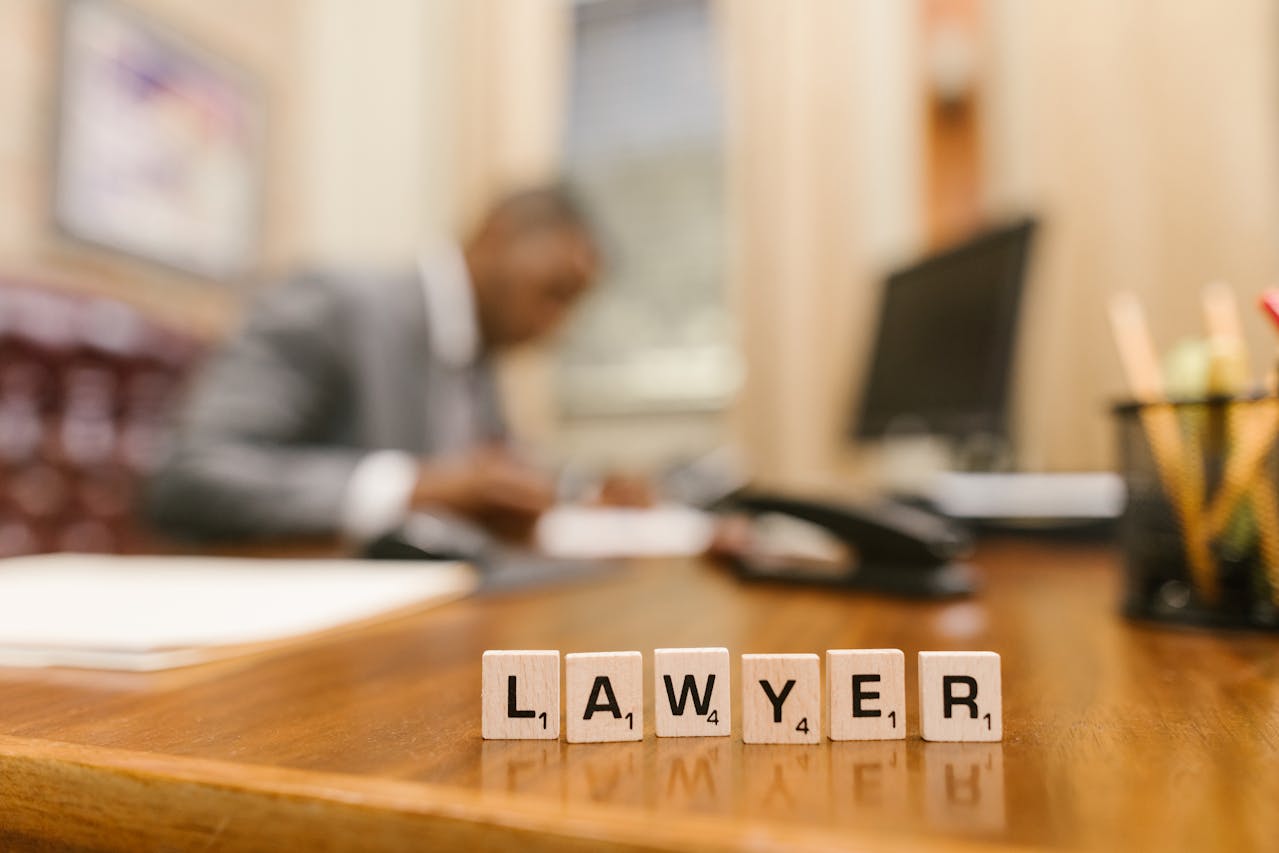Now Reading: Why Choosing the Right Injury Attorney in Atlanta Can Change Everything
-
01
Why Choosing the Right Injury Attorney in Atlanta Can Change Everything

Why Choosing the Right Injury Attorney in Atlanta Can Change Everything
Suffering a personal injury—whether from a car accident, workplace mishap, slip and fall, or medical malpractice—can be a life-altering experience. Physical pain, emotional trauma, and financial burdens often converge, leaving victims overwhelmed and unsure of what to do next. In such critical moments, the decision to hire a qualified injury attorney isn’t just important—it can be the most pivotal choice you make for your future. Especially in a bustling city like Atlanta, selecting the right injury lawyer can truly change everything.
Understanding the High Stakes of Personal Injury Cases
When you’ve been hurt due to someone else’s negligence, you’re entitled to seek compensation. However, navigating the complex legal system, dealing with insurance companies, and collecting evidence all require legal expertise. A misstep in your case could lead to reduced compensation, or none at all.
Why Representation Matters
The stakes in personal injury cases are high. Medical bills, lost wages, and long-term rehabilitation costs can escalate quickly. Without legal representation, you’re vulnerable to lowball settlements or outright denials from insurers. Hiring a competent personal injury attorney ensures your rights are protected and your claim is presented effectively.
What Sets Atlanta Apart in Personal Injury Law
Atlanta is not only one of the busiest metropolitan areas in the Southeast but also has a high incidence of traffic-related injuries and workplace accidents. Due to its size and diversity, the city’s legal landscape is both competitive and complex. Local laws, court rules, and even judge preferences can vary widely across Georgia counties.
Unique Legal Challenges in Georgia
Georgia follows a modified comparative negligence rule, which means that if you’re found to be 50% or more at fault for your injury, you can’t recover any compensation. This rule can be leveraged aggressively by insurance companies unless you have a knowledgeable attorney by your side. Having someone who understands Georgia’s personal injury law—including statutes of limitations, damage caps, and negligence doctrines—is vital. A useful primer on the basic principles can be found here.
Traits of a High-Caliber Injury Attorney in Atlanta
Not all injury lawyers are created equal. The right attorney brings more than just legal credentials—they offer compassion, dedication, and a proven track record.
Proven Track Record
Look for attorneys who have secured significant verdicts or settlements in cases similar to yours. This demonstrates their ability to handle complex negotiations or courtroom litigation effectively.
Strong Reputation and Client Reviews
An attorney’s reputation often speaks volumes. Check for peer reviews, testimonials, and professional ratings. A reliable source for evaluating lawyers’ professional standing is Martindale-Hubbell, a long-established legal directory.
Transparent Communication
From your initial consultation to case resolution, clear communication is essential. You should never feel left in the dark about your case’s progress or legal strategy. A good attorney will provide updates, explain legal jargon, and ensure you’re informed at every step.
How the Right Attorney Maximizes Compensation
The compensation you receive depends not only on the facts of the case but on how well your lawyer presents those facts. A seasoned attorney will investigate the incident thoroughly, consult with medical and accident reconstruction experts, and quantify damages accurately.
Types of Damages You May Be Entitled To
- Medical Expenses: Current and future costs, including hospital stays, surgeries, physical therapy, and medications.
- Lost Wages: Both the immediate time off work and any long-term loss in earning capacity.
- Pain and Suffering: Compensation for physical pain and emotional distress.
- Punitive Damages: In rare cases involving gross negligence, additional compensation may be awarded as a form of punishment.
Strategic Negotiation with Insurance Companies
Insurance companies often seek to minimize payouts. An experienced injury attorney knows how to counter these tactics, leveraging evidence, legal precedents, and expert testimonies to build a compelling case. With the right representation, the settlement offer you receive can be significantly higher than what you’d achieve alone.
Common Types of Personal Injury Cases in Atlanta
Understanding the types of injury cases that commonly occur in Atlanta can also help you recognize when legal representation is warranted.
Auto Accidents
As a major transportation hub, Atlanta sees thousands of car, truck, and motorcycle accidents annually. With congested roads and distracted driving on the rise, personal injury attorneys in the area frequently handle such cases.
Slip and Fall Incidents
Commercial properties, sidewalks, and even public spaces can pose serious slip and fall hazards. Property owners have a legal obligation to maintain safe premises, and when they fail, they may be held liable.
Workplace Injuries
Although workers’ compensation exists, some injuries involve third-party negligence or gross misconduct, opening the door to personal injury claims.
Medical Malpractice
Atlanta is home to many top-tier hospitals, but even skilled professionals can make mistakes. Surgical errors, misdiagnoses, and medication mistakes can have devastating consequences, requiring legal recourse.
Your Role in the Legal Process
While your attorney handles the legal heavy lifting, your cooperation is essential for building a strong case.
Document Everything
From medical records to photos of the accident scene, keeping thorough documentation can significantly strengthen your case.
Follow Medical Advice
Insurance companies often scrutinize medical compliance. Failing to attend appointments or follow prescribed treatments can be used against you.
Communicate Honestly
Your attorney needs to know the full picture. Be honest about your injuries, previous medical history, and any developments in your condition.
Time Is of the Essence: Don’t Delay
In Georgia, the statute of limitations for most personal injury claims is two years from the date of the incident. Delaying legal action can result in lost evidence and missed deadlines, potentially barring you from compensation altogether.
Making the Right Choice the First Time
Choosing the right injury attorney shouldn’t be a rushed decision. Take the time to research, schedule consultations, and ask important questions:
- What is your experience with cases like mine?
- How are fees structured?
- Who will handle my case—an associate or a senior attorney?
- What is your success rate?
By asking these questions, you’re not just hiring a lawyer; you’re building a partnership aimed at achieving justice and recovery.
Final Thoughts: One Decision Can Change Everything
When you or a loved one is hurt, the last thing you should have to worry about is navigating a confusing legal system alone. The right attorney can relieve that burden, fight for your rights, and ensure you receive the compensation you need to heal and move forward.
If you’re in need of legal guidance, don’t underestimate the importance of expertise, reputation, and local knowledge. Choosing the right injury lawyer in Atlanta is not just about legal representation—it’s about reclaiming your future.
To start on the right path with a trusted Atlanta personal injury lawyer, you can take that first step toward justice today.
About the author: Mark Scott
With a law degree under his belt, Mark Scott understood very early that law communication was a relatively neglected area. He decided to help people by “translating” the language and offering information and advice in a clear, useful, and actionable manner. For this reason, instead of finding him in court, you will most likely find his name online, where he is very active and thriving as a legal columnist. His part of making the world a better place is to make the law a less convoluted maze. He aims to make it easier for people to understand when and how to seek legal counsel, how to proceed in a significant number of legal matters, and to find the proper resources so they can stand up for their rights.











